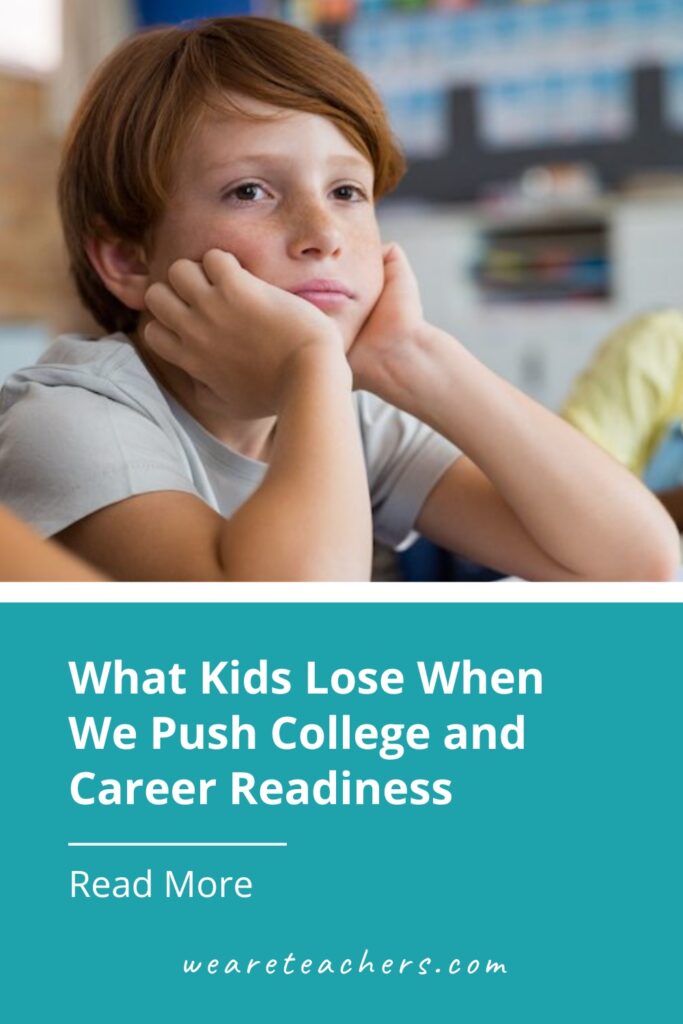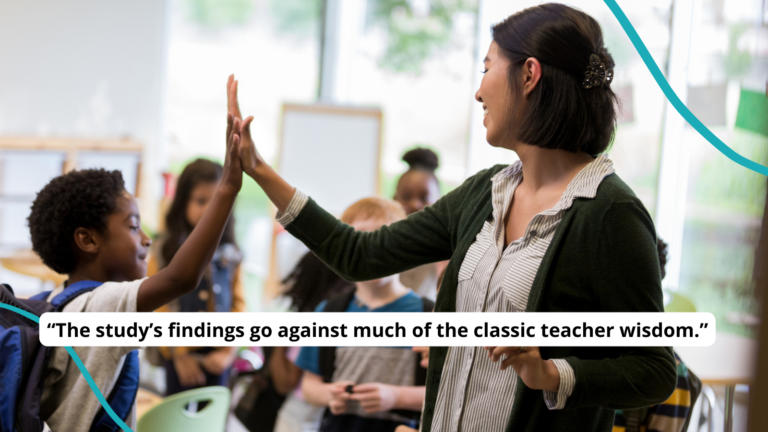I teach 6th graders, so they are basically really tall infants. They still own matching pajamas. They throw a fit if their chair is two feet to the left of their table. If you let them bring in a single stuffed animal, they will agonize all week over which one to choose. Recently, an 8th grade teacher asked my team to assign our students more homework to prepare them for her class … so that she can prepare them for high school.
It’s not that the kids aren’t academically competent. Most of them are reading at or above grade level, and they’re reasonably proficient in math. Even if that weren’t the case, there’s no evidence that homework actually helps. No, the purpose of this request was to get our 11-year-olds in the habit of doing the hours of homework that might be required when they’re 17. Because 17-year-olds have to get ready for the level of rigor required in college.
In our drive to constantly prepare students for what comes next, we ignore the fact that they’re children.
These are not adults in a career for whom additional challenge and responsibility is a natural step forward. Their brains are changing rapidly, and what’s developmentally appropriate for a 10th grader—like using a lengthy checklist to independently complete a two-week project—is light-years beyond the capability of your average 7th grader.
And it’s not only the workload. Our expectations of students’ executive-functioning skills have gone wild, too. Once upon a time, students were in a classroom with the same teacher for all subjects until their teenage years. By the time I was in 5th grade, we had a team of two teachers and switched classes several times a day. My son started changing classes when he was in the 3rd grade.
Think for a minute about the skills a kid needs to navigate multiple classes.
- They have to be able to organize their materials and bring the right supplies to each classroom.
- They have to be able to switch focus according to the bell rather than natural transitions or pauses between activities.
- They have to have the physical dexterity to pack up their stuff, move it across the hall, and unpack it quickly.
- They have to code-switch between the preferences, expectations, and pet peeves of teachers multiple times a day.
That’s a lot to ask of an 8-year-old.
And the major problem with age-inappropriate “college and career readiness” is, of course, that it doesn’t work. First graders can’t do worksheets for an hour, even if they’ll have to do that in 4th grade. A 5th grader can’t choose the important information from a video, write it in their own words, and organize it into a thoughtful response, even if a 9th grader needs to.
And we can’t make kids’ brains develop faster.
It’s like when people potty-train their 6-month-old. You can (maybe?) teach them to let you know when they need to poop, but they still can’t get to the bathroom and do it themselves. The parents train themselves, not the child. But you can certainly make yourself crazy in the process.
Our focus on “college and career readiness” is training teachers, not students.
It’s training us to push performance over process with kids who are nowhere close to ready.
It’s training us to force boring, “rigorous” activities on curious, active kids because “they’ll need to know how to do this next year.”
It’s training us to discipline our way through too little recess, too few breaks, and a shortage of joy in the name of increased instructional time.
It’s training us to battle little kids incessantly as we try to coerce them into tasks their brains aren’t ready for.
This training doesn’t result in kids who are college and career ready. It results in kids who are anxious, bored, disruptive, and unhealthy.
This isn’t a problem individual teachers can solve; it’s systemic in our K-12 schools. As teachers, we have to speak up for our sanity and our students’ childhood. Age-inappropriate instruction isn’t working for anybody.
Looking for more articles like this? Be sure to subscribe to our newsletters!


